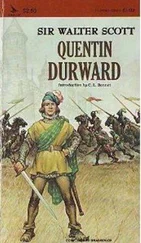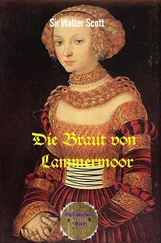Walter Scott - Letters on Demonology and Witchcraft
Здесь есть возможность читать онлайн «Walter Scott - Letters on Demonology and Witchcraft» весь текст электронной книги совершенно бесплатно (целиком полную версию без сокращений). В некоторых случаях можно слушать аудио, скачать через торрент в формате fb2 и присутствует краткое содержание. Жанр: История, на английском языке. Описание произведения, (предисловие) а так же отзывы посетителей доступны на портале библиотеки ЛибКат.
- Название:Letters on Demonology and Witchcraft
- Автор:
- Жанр:
- Год:неизвестен
- ISBN:нет данных
- Рейтинг книги:4 / 5. Голосов: 1
-
Избранное:Добавить в избранное
- Отзывы:
-
Ваша оценка:
- 80
- 1
- 2
- 3
- 4
- 5
Letters on Demonology and Witchcraft: краткое содержание, описание и аннотация
Предлагаем к чтению аннотацию, описание, краткое содержание или предисловие (зависит от того, что написал сам автор книги «Letters on Demonology and Witchcraft»). Если вы не нашли необходимую информацию о книге — напишите в комментариях, мы постараемся отыскать её.
Letters on Demonology and Witchcraft — читать онлайн бесплатно полную книгу (весь текст) целиком
Ниже представлен текст книги, разбитый по страницам. Система сохранения места последней прочитанной страницы, позволяет с удобством читать онлайн бесплатно книгу «Letters on Demonology and Witchcraft», без необходимости каждый раз заново искать на чём Вы остановились. Поставьте закладку, и сможете в любой момент перейти на страницу, на которой закончили чтение.
Интервал:
Закладка:
To a person who, in this presumptuous, trifling, and conceited spirit, has composed a quarto volume full of the greatest absurdities and grossest obscenities ever impressed on paper, it was the pleasure of the most Christian Monarch to consign the most absolute power which could be exercised on these poor people; and he might with as much prudence have turned a ravenous wolf upon an undefended flock, of whom the animal was the natural enemy, as they were his natural prey. The priest, as well as the ignorant peasant, fell under the suspicion of this fell Commission; and De Lancre writes, with much complacency, that the accused were brought to trial to the number of forty in one day—with what chance of escape, when the judges were blinded with prejudice, and could only hear the evidence and the defence through the medium of an interpreter, the understanding of the reader may easily anticipate.
Among other gross transgressions of the most ordinary rules, it may be remarked that the accused, in what their judges called confessions, contradicted each other at every turn respecting the description of the Domdaniel in which they pretended to have been assembled, and the fiend who presided there. All spoke to a sort of gilded throne; but some saw a hideous wild he-goat seated there; some a man disfigured and twisted, as suffering torture; some, with better taste, beheld a huge indistinct form, resembling one of those mutilated trunks of trees found in ancient forests. But De Lancre was no "Daniel come to judgment," and the discrepancy of evidence, which saved the life and fame of Susannah, made no impression in favour of the sorcerers of Labourt.
Instances occur in De Lancre's book of the trial and condemnation of persons accused of the crime of lycanthropy , a superstition which was chiefly current in France, but was known in other countries, and is the subject of great debate between Wier, Naudé, Scot, on the one hand, and their demonological adversaries on the other. The idea, said the one party, was that a human being had the power, by sorcery, of transforming himself into the shape of a wolf, and in that capacity, being seized with a species of fury, he rushed out and made havoc among the flocks, slaying and wasting, like the animal whom he represented, far more than he could devour. The more incredulous reasoners would not allow of a real transformation, whether with or without the enchanted hide of a wolf, which in some cases was supposed to aid the metamorphosis, and contended that lycanthropy only subsisted as a woful species of disease, a melancholy state of mind, broken with occasional fits of insanity, in which the patient imagined that he committed the ravages of which he was accused. Such a person, a mere youth, was tried at Besançon, who gave himself out for a servant, or yeoman pricker, of the Lord of the Forest—so he called his superior—who was judged to be the devil. He was, by his master's power, transformed into the likeness and performed the usual functions of a wolf, and was attended in his course by one larger, which he supposed the Lord of the Forest himself. These wolves, he said, ravaged the flocks, and throttled the dogs which stood in their defence. If either had not seen the other, he howled, after the manner of the animal, to call his comrade to his share of the prey; if he did not come upon this signal, he proceeded to bury it the best way he could.
Such was the general persecution under Messieurs Espiagnel and De Lancre. Many similar scenes occurred in France, till the edict of Louis XIV. discharging all future prosecutions for witchcraft, after which the crime itself was heard of no more. [52] [52] The reader may sup full on such wild horrors in the causes célèbres .
While the spirit of superstition was working such horrors in France, it was not, we may believe, more idle in other countries of Europe. In Spain, particularly, long the residence of the Moors, a people putting deep faith in all the day-dreams of witchcraft, good and evil genii, spells and talismans, the ardent and devotional temper of the old Christians dictated a severe research after sorcerers as well as heretics, and relapsed Jews or Mahommedans. In former times, during the subsistence of the Moorish kingdoms in Spain, a school was supposed to be kept open in Toboso for the study, it is said, of magic, but more likely of chemistry, algebra, and other sciences, which, altogether mistaken by the ignorant and vulgar, and imperfectly understood even by those who studied them, were supposed to be allied to necromancy, or at least to natural magic. It was, of course, the business of the Inquisition to purify whatever such pursuits had left of suspicious Catholicism, and their labours cost as much blood on accusations of witchcraft and magic as for heresy and relapse.
Even the colder nations of Europe were subject to the same epidemic terror for witchcraft, and a specimen of it was exhibited in the sober and rational country of Sweden about the middle of last century, an account of which, being translated into English by a respectable clergyman, Doctor Horneck, excited general surprise how a whole people could be imposed upon to the degree of shedding much blood, and committing great cruelty and injustice, on account of the idle falsehoods propagated by a crew of lying children, who in this case were both actors and witnesses.
The melancholy truth that "the human heart is deceitful above all things, and desperately wicked," is by nothing proved so strongly as by the imperfect sense displayed by children of the sanctity of moral truth. Both the gentlemen and the mass of the people, as they advance in years, learn to despise and avoid falsehood; the former out of pride, and from a remaining feeling, derived from the days of chivalry, that the character of a liar is a deadly stain on their honour; the other, from some general reflection upon the necessity of preserving a character for integrity in the course of life, and a sense of the truth of the common adage, that "honesty is the best policy." But these are acquired habits of thinking. The child has no natural love of truth, as is experienced by all who have the least acquaintance with early youth. If they are charged with a fault while they can hardly speak, the first words they stammer forth are a falsehood to excuse it. Nor is this all: the temptation of attracting attention, the pleasure of enjoying importance, the desire to escape from an unpleasing task, or accomplish a holiday, will at any time overcome the sentiment of truth, so weak is it within them. Hence thieves and housebreakers, from a surprisingly early period, find means of rendering children useful in their mystery; nor are such acolytes found to evade justice with less dexterity than the more advanced rogues. Where a number of them are concerned in the same mischief, there is something resembling virtue in the fidelity with which the common secret is preserved. Children, under the usual age of their being admitted to give evidence, were necessarily often examined in witch trials; and it is terrible to see how often the little impostors, from spite or in mere gaiety of spirit, have by their art and perseverance made shipwreck of men's lives. But it would be hard to discover a case which, supported exclusively by the evidence of children (the confessions under torture excepted), and obviously existing only in the young witnesses' own imagination, has been attended with such serious consequences, or given cause to so extensive and fatal a delusion, as that which occurred in Sweden.
The scene was the Swedish village of Mohra, in the province of Elfland, which district had probably its name from some remnant of ancient superstition. The delusion had come to a great height ere it reached the ears of government, when, as was the general procedure, Royal Commissioners were sent down, men well fitted for the duty entrusted to them; that is, with ears open to receive the incredibilities with which they were to be crammed, and hearts hardened against every degree of compassion to the accused. The complaints of the common people, backed by some persons of better condition, were that a number of persons, renowned as witches, had drawn several hundred children of all classes under the devil's authority. They demanded, therefore, the punishment of these agents of hell, reminding the judges that the province had been clear of witches since the burning of some on a former occasion. The accused were numerous, so many as threescore and ten witches and sorcerers being seized in the village of Mohra; three-and-twenty confessed their crimes, and were sent to Faluna, where most of them were executed. Fifteen of the children were also led to death. Six-and-thirty of those who were young were forced to run the gauntlet, as it is called, and were, besides, lashed weekly at the church doors for a whole year. Twenty of the youngest were condemned to the same discipline for three days only.
Читать дальшеИнтервал:
Закладка:
Похожие книги на «Letters on Demonology and Witchcraft»
Представляем Вашему вниманию похожие книги на «Letters on Demonology and Witchcraft» списком для выбора. Мы отобрали схожую по названию и смыслу литературу в надежде предоставить читателям больше вариантов отыскать новые, интересные, ещё непрочитанные произведения.
Обсуждение, отзывы о книге «Letters on Demonology and Witchcraft» и просто собственные мнения читателей. Оставьте ваши комментарии, напишите, что Вы думаете о произведении, его смысле или главных героях. Укажите что конкретно понравилось, а что нет, и почему Вы так считаете.









